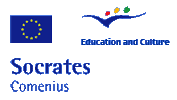 |
||||||||||||
|
|
In order to teach science in the context of science literacy a variety of teaching strategies may be used, such as debate, role-play, poster design, discussion on texts (coming from literature, poetry, philosophy, history), discussion on newspaper articles and other media material, web-site design etc. These teaching strategies encourage learners to participate in discussions and exchange ideas concerning nature of science and the interrelations between science and society. Some of these teaching strategies are briefly presented below. Debate Science education may provide a fruitful field for debate and discussion. For example energy resources and the current research on DNA are only two of the many different topics that interest teachers and pupils today especially if they are presented combined with their effect on the quality of life. Debates on topics like the two mentioned above may be easily realized and are very useful in teacher-training as they help teachers get familiar to using debate techniques in the classroom as well get introduced to a wider culture of science education focusing on nature of science and science and society interrelations. Participants in a debate session usually form three groups and each group gets a closed envelop containing information about the ideas they have to support with arguments during the debate. Usually two of the groups support the two opposite views and the third group play the role of journalists or citizens that try to understand the arguments of both sides. This third group also coordinates the realisation of the debate. All groups get the same material with information about the advantages and disadvantages of both cases. This information is presented in a way that provides a balance to the debate offering arguments to both sides, therefore neither side can easily win the debate. The participants have enough time to study the information concerning the debate and discuss in groups and built their argumentation. When all groups are ready the actual debate starts. A representative for each one of the first two groups supports their position in a five minutes talk and then the participants of the third group start making questions to both sides while the members of the first and the second group may also raise questions to each other. The debate should be focused on science knowledge management in the society. Therefore, participants have the opportunity to experience science become a field of training in discussion and debate techniques. Role-play Role-play may become for science teaching a field for the development of useful skills such as the ability of understanding the many different points of view concerning a certain situation. Therefore, science issues, that affect society nowadays or affected culture, economy, ethics etc. in the past, in the context of a role-play in the science classroom give to the participant the opportunity to confront ideas that are from similar to completely different to their own ideas. Each role in a role-play carries an attitude or a social stereotype that is also elaborated during the role-play. Participants in role-play session form groups and are given material with information for developing their roles. When all groups are ready the role-play takes place and participants are encouraged to improvise. Science role-plays offer to the participants the opportunity to see social phenomena interrelated to science issues and re-examine their personal position towards them. Nevertheless, role-play encourages expression, observation, analysis and realization of the multiple aspects of a certain situation. Poster design and poster presentation Many science topics may be elaborated in a poster session. Participants work in groups and design a poster (using collage technique) about a science theme. They are given colourful cardboards (1m X 0.5m) as bases for their posters, magazines to cut photos to be used as background, black and white photocopies of selected material and even some books where they can look for further information in order to compose the topic of their poster. They are also given scissors, glue and markers that write in various colours. When the posters are ready they are hung in the classroom and the members of each group present their poster to the whole class and answer to questions. In a poster session, science becomes a field for training in designing and presenting visual (collage) and oral (oral presentation) concrete messages and ideas on a certain topic: a skill needed in most fields of education and work. Discussion on texts The study, analysis and discussion on texts coming from literature, poetry and philosophy that concern the way science affected culture may become a useful teaching strategy in the context of science literacy. Selected texts of writers, poets and philosophers on a science topic may start a fruitful discussion concerning the cultural interrelations of science and society. Participants discuss first in groups and then all together focusing on the interrelations of culture and science, religion and science, ethics and science. Web-site design Participants work in groups for a period of one to two months and design a web-site concerning a certain science topic. They search in the web and collect information about their topic. They are asked to combine the material they gather, make the scenario a web site and actually develop he site. If the participants have already attended a poster session (poster design and presentation on a science subject), now the web site that they are asked to design is a kind of talking, interacting, changing poster. Participants are asked to and they actually experience a transition from the still to the moving picture-message and from the old traditional collage technique to the modern multimedia design. |
